Last Updated on March 7, 2024 by Archie Biggs

Your Ticket to Superior Financial Services: The Good Credit Score
Ever imagined your financial reliability being boiled down to a three-digit figure? That’s precisely what a good credit score does. It’s more than just a number. It’s your passport to a plethora of diverse financial products and services that not only offer a competitive edge but also open up a world of possibilities.
Your credit score, specifically a FICO score ranging between 670 and 739, speaks volumes about your financial discipline and responsibility. You’re seen as a low-risk client, a trustworthy individual who’s earned the respect of financial institutions. This trust manifests in tangible benefits – access to top-tier financial products, preferred loan, and insurance rates. That’s right! A good credit score is the key that unlocks your golden financial prospects.
Harness the Power of Credit Cards for Good Credit
Isn’t it amazing how your good credit score opens up a universe of credit cards? Each comes with its unique set of rewards, bonuses, and benefits. Credit cards for good credit aren’t designed just like any other cards. They offer premium perks, including sign-up bonuses, introductory APR periods, and cost-saving benefits. The most lucrative rewards programs on the market come with these cards. Shall we take a closer look at what you stand to gain?
Rewards That Keep on Giving
Credit cards for good credit come with impressive rewards programs. Travel enthusiast or shopaholic? Worry not, there’s a card tailored just for you! Travel rewards cards allow you to earn points or miles for every dollar you spend. Cash back cards, on the other hand, offer a percentage of your spending back in cash. With these rewards, your financial flexibility sees a significant boost, reducing your purchases’ cost and ensuring your money works harder for you.
Sign-Up Bonuses and Intro APR Periods
Credit card companies are vying for your attention. The competition for customers with good credit is cutthroat. In an attempt to attract your business, they offer attractive sign-up bonuses and introductory APR periods. These bonuses can range from a substantial lump sum of cash back to tens of thousands of airline miles. Intro APR periods come with low or even 0% interest rates for a set duration. Both can lead to huge savings, especially if you’re planning a big purchase or need to pay off a balance over time.
Cost-Saving Benefits and Luxury Perks
A good credit score not only gives access to credit cards but also opens up a world of cost-saving benefits and high-end perks. These can include anything from extended warranty coverage and purchase protection to VIP treatment at hotels and airports. Are you a frequent traveler? You’re in for a treat with premium perks such as access to airport lounges, travel insurance, and priority boarding. Each trip is a luxury experience in itself!
Your Guide to Maximizing the Value of Credit Cards for Good Credit
To get the most out of your credit card for good credit, it’s essential to understand your spending habits, identify your financial goals, and choose a card that matches these parameters. By picking the right card, using it responsibly, and paying off your balance in full each month, you stand to reap significant rewards and potentially improve your credit score over time.
American Express® Gold Card
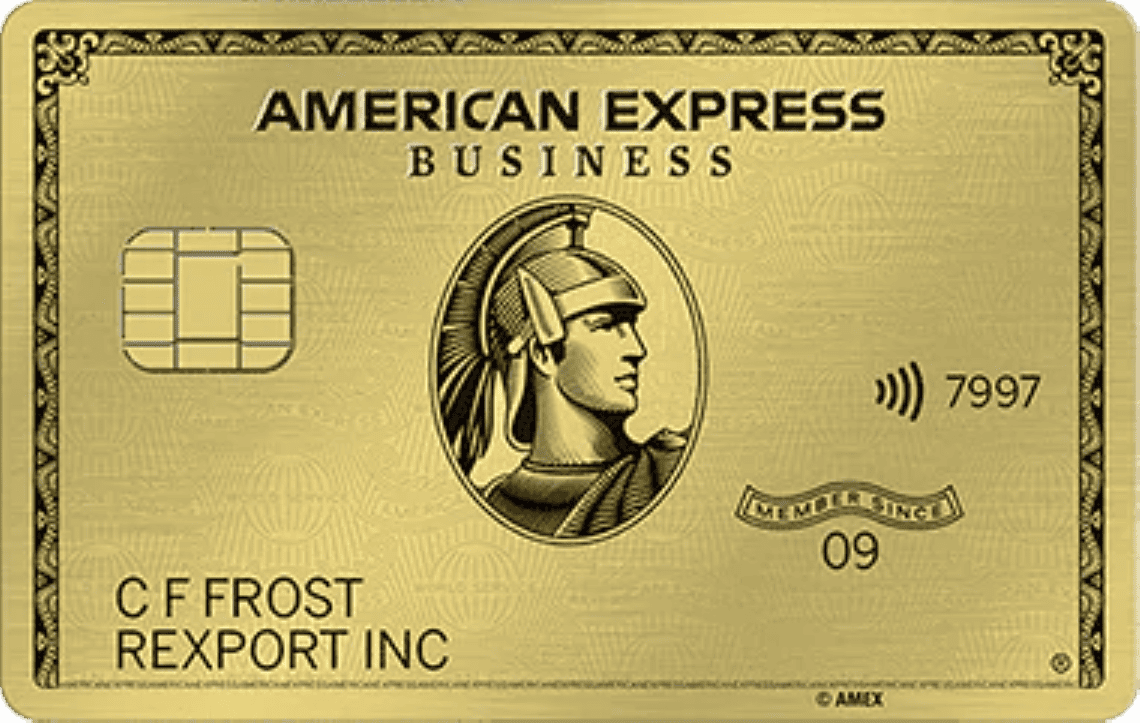
Earn 4X Membership Rewards® points at U.S. supermarkets (on up to $25,000 per calendar year in purchases, then 1X
Earn 3X Membership Rewards® points on flights booked directly with airlines or on amextravel.com.
Intro offer - Earn 60,000 Membership Rewards® points after you spend $6,000 on eligible purchases with your new Card within the first 6 months of Card Membership.
Annual fee $250,
Regular APR - 21.24% to 29.24% variable APR
Credit Needed - Good, Excellent
Discover it® Cash Back Credit Card
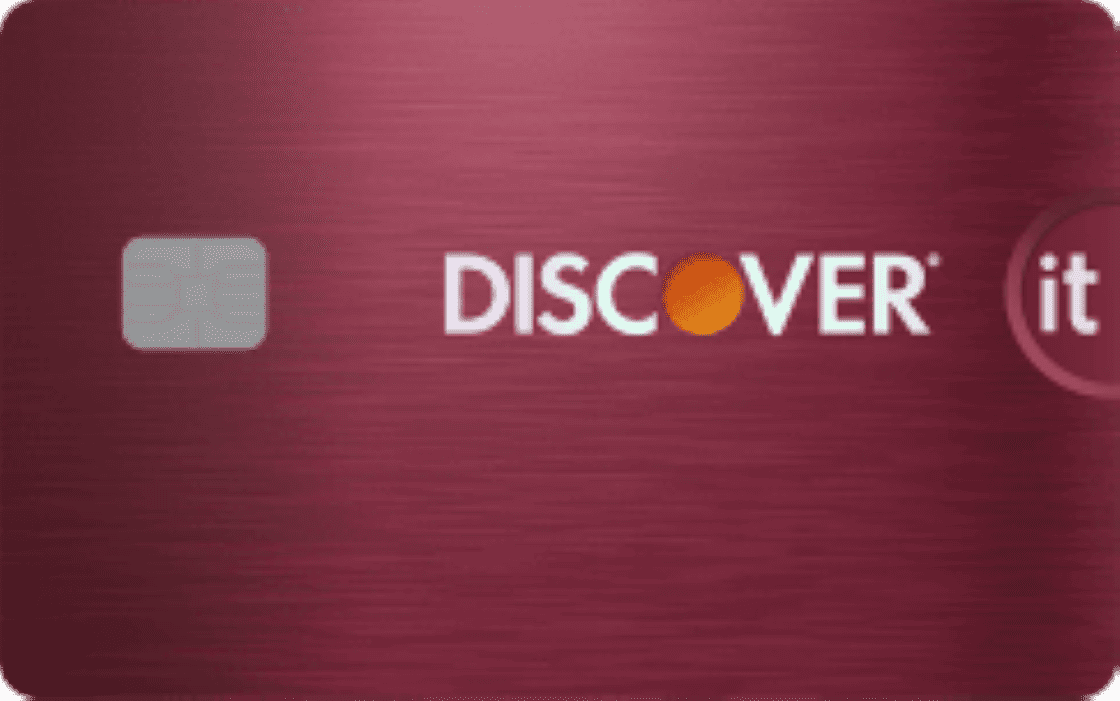
Plus, earn unlimited 1% cash back on all other purchases – automatically.
Intro Offer - Cashback Match
Annual Fee - $0
Regular APR 16.74% - 27.74% Variable
Credit Needed - Good-Excellent
The Platinum Card® from American Express
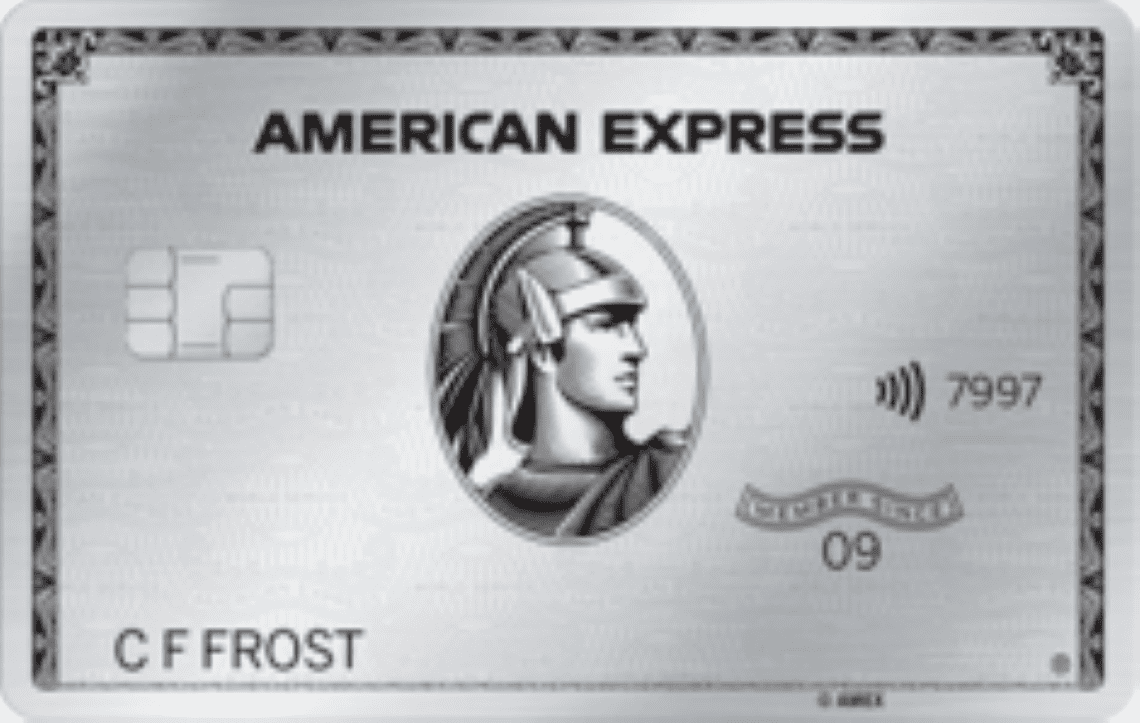
Earn 5X Membership Rewards® Points on prepaid hotels booked with American Express Travel.
Intro offer - Earn 80,000 Membership Rewards® Points after you spend $8,000 on purchases on the Card in your first 6 months of Card Membership.
Annual fee - $695
Regular APR - Pay Over Time APR Credit Needed - Good, Excellent
Chase Sapphire Preferred® Card

3x on dining.
2x on all other travel purchases, plus more.
Intro offer - Earn 60,000 bonus points after you spend $4,000 on purchases in the first 3 months from account opening. That's $750 when you redeem through Chase Ultimate Rewards®
Annual fee $95
Regular APR 21.49% - 28.49% variable APR
Credit Needed - Good, Excellent
Discover it® Balance Transfer

0% Intro APR for 6 months on purchases.
3% Intro fee on balances transferred by July 10, 2024.
Intro Offer: Unlimited Cashback Match - only from Discover. Discover will automatically match all the cash back you've earned at the end of your first year!
No minimum spending or maximum rewards!
Annual fee - $0
Regular APR 17.24% - 28.24% Variable
Credit Needed - Good, Excellent
Blue Cash Preferred® Card from American Express
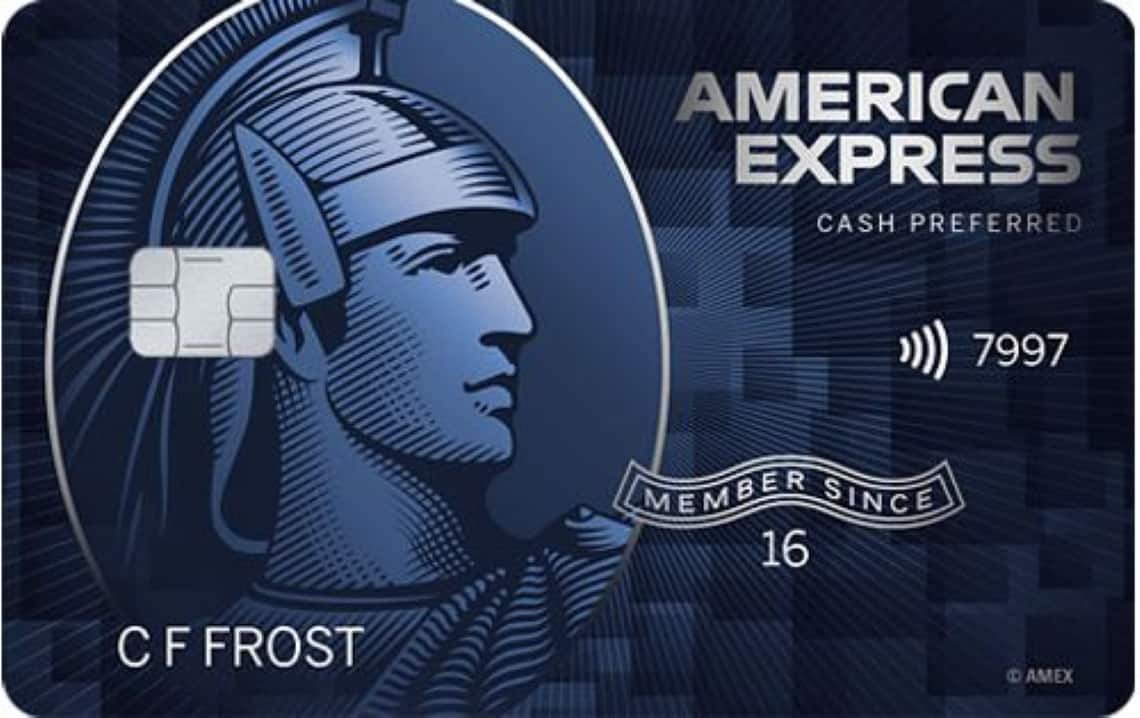
6% Cash Back on select U.S. streaming subscriptions.
3% Cash Back on transit including taxis/rideshare, parking, tolls, trains, buses and more.
3% Cash Back at U.S. gas stations
1% Cash Back on other purchases
Intro offer - Earn a $250 statement credit after you spend $3,000 in purchases on your new Card within the first 6 months.
Annual fee - $0 intro annual fee for the first year, then $95. Regular APR - 19.24% - 29.99% variable Credit Needed - Good, Excellent
Capital One Quicksilver Cash Rewards Credit Card

Earn unlimited 1.5% cash back on every purchase, every day
Info Offer - Earn a one-time $200 cash bonus after you spend $500 on purchases within 3 months from account opening
Annual fee - $0
Regular APR - 19.99% - 29.99% (Variable)
Credit Needed- Good, Excellent
Wells Fargo Active Cash® Card

Intro Offer - Earn a $200 cash rewards bonus after spending $500 in purchases in the first 3 months
Annual fee - $0
Regular APR - 20.24%, 25.24%, or 29.99% variable APR
Credit Needed - Good, Excellent
Capital One Venture Rewards Credit Card

Earn unlimited 2X miles on every purchase, every day.
Intro Offer - New Venture cardholders can earn 75,000 miles once they spend $4,000 on purchases within 3 months from account opening
Annual fee - $95
Regular APR - 21.24% - 29.24% (Variable)
Credit Needed - Good, Excellent
Hilton Honors American Express Card
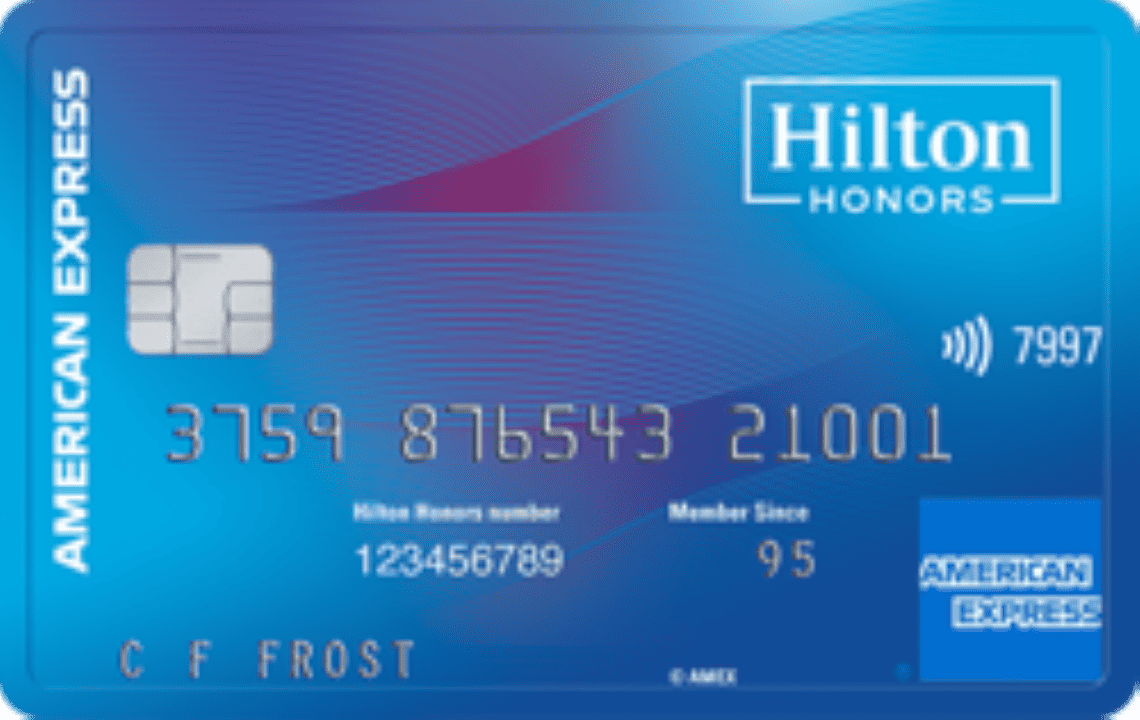
Earn 5X Hilton Honors Bonus Points for each dollar of eligible purchases on dining at U.S. restaurants, including takeout and delivery.
3X Bonus Points on all other eligible purchases
Earn 5X Hilton Honors Bonus Points for each dollar of eligible purchases on groceries at U.S. supermarkets.
Intro Offer - Earn 100,000 Hilton Honors Bonus Points after you spend $2,000 in purchases on the Card within your first 3 months of Card Membership
Annual fee - $0
Regular APR - 20.49%-29.49% Variable
Credit Needed - Good, Excellent
Citi® Double Cash Card
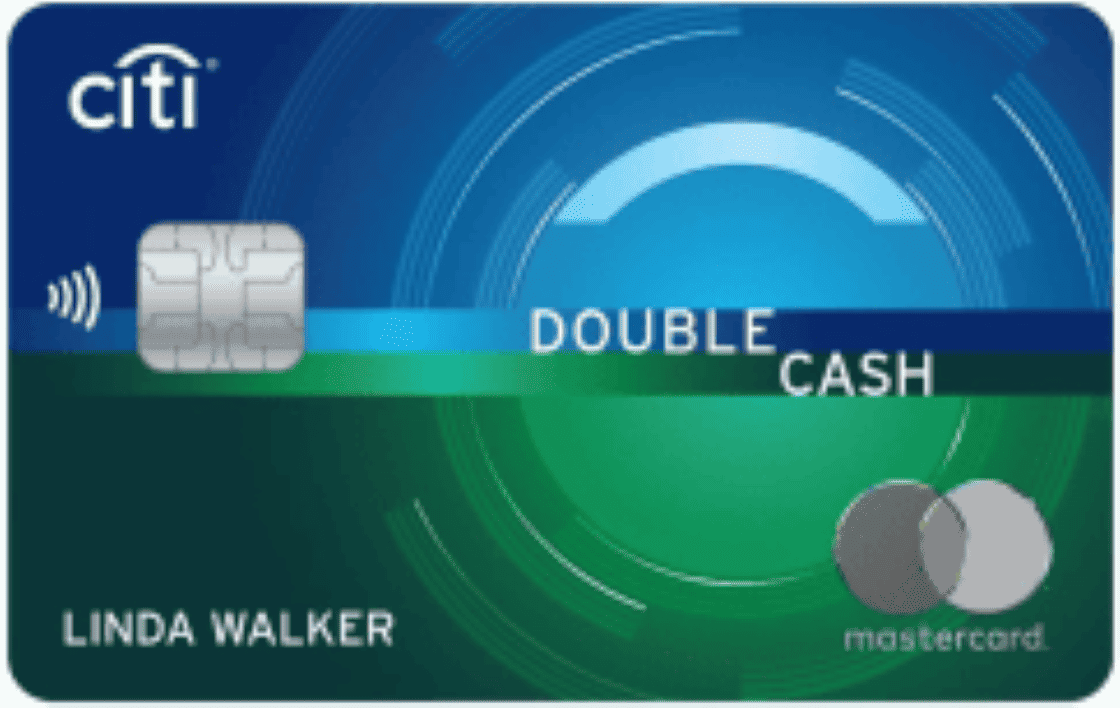
Intro Offer - 0% intro APR on balance transfers for 18 months
Annual fee - $0
Regular APR - 19.24% - 29.24% (Variable)
Credit Needed - Good, Excellent
Citi Custom Cash℠ Card

Earn unlimited 1% cash back on all other purchases.
Intro Offer - Earn $200 cash back after you spend $1,500 on purchases in the first 6 months of account opening. This bonus offer will be fulfilled as 20,000 ThankYou® Points, which can be redeemed for $200 cash back
Get 0% Intro APR for 15 months on purchases and balance transfers
Annual fee - $0
Regular APR - 19.24% - 29.24% (Variable)
Credit Needed - Good, Excellent
Capital One VentureOne Rewards Credit Card

Intro Offer - Earn 40,000 bonus miles once you spend $1,000 on purchases within the first 3 months from account opening
Plus
0% intro on purchases and balance transfers for 18 months
Annual fee - $0 Foreign transaction fee - $0 Regular APR - 19.74% - 29.74% (Variable)
Chase Sapphire Reserve®

Earn 5x total points on flights through Chase Ultimate Rewards®.
Earn 3x points on other travel and dining.
Earn 1 point per $1 spent on all other purchases
Intro Offer - Earn 60,000 bonus points after you spend $4,000 on purchases in the first 3 months from account opening. That's $900 toward travel when you redeem through Chase Ultimate Rewards®
Annual fee - $550
Regular APR - 21.49% - 28.49% Variable
Credit Needed - Excellent
Wells Fargo Reflect® Card

Intro APR extension for 3 months with on-time minimum payments during the introductory period.
18.24% to 29.99% variable APR thereafter. Balance transfers made within 120 days qualify for the intro rate and fee.
$0 Annual Fee
Chase Freedom Unlimited®

Get 3% Cash Back on Gas station and grocery store purchases (not including Target or Walmart).
Enjoy 5% cash back on travel purchased through Chase Ultimate Rewards®
3% cash back on drugstore purchases and dining at restaurants, including takeout and eligible delivery services
Unlimited 1.5% cash back on all other purchases.
Intro Offer - Earn an additional 1.5% cash back on everything you buy (on up to $12,000 spent in the first year) - worth up to $180 cash back!
0% intro APR for 15 months from account opening on purchases and balance transfers. After the intro period
Annual fee - $0 Regular APR -20.49% - 29.24% Variable
Credit Needed - Good, Excellent
Achieving Financial Prosperity: A Comprehensive Guide on Good Credit
Good credit can feel like an elusive beast if you’re not sure how to tame it. But worry not, we’ve got you covered! Let’s dive in.
Understanding ‘Good Credit’
“Good credit” – a phrase you’ve probably heard a hundred times, but what does it really mean? Simply put, it’s a badge of honor given to those who manage their debts responsibly. It’s an indicator to lenders, banks, and credit card companies that you’re less of a financial risk. Good credit typically refers to FICO scores between 670 and 739, and VantageScore values of 700-749.
Your FICO and VantageScore are crucial in assessing your credit health. While they have different designs, both these scoring systems serve the same purpose. They predict your credit risk based on past behavior. Understanding them is akin to having a financial GPS. With them, you can plot your journey towards achieving financial prosperity.
The Power and Pitfalls of Good Credit
Good credit is like a magical key that opens numerous financial doors. It gets you lower interest rates on loans and credit cards, better approval chances, and increased negotiating power. Moreover, it smooths the process of renting apartments. It’s like being in a VIP club where opportunities abound and rewards are ripe for the picking.
But, beware! With great credit comes great responsibility. The risk? Becoming complacent. You might find yourself applying for more credit than necessary, causing a temporary dip in your score due to hard inquiries. So remember, vigilance is just as important as celebration in the world of good credit.
Mastering the Credit Card Acquisition Process
Picking a credit card when you have a good credit score is more art than science. The rule of thumb? Avoid applying for multiple cards simultaneously. Each application leads to a hard inquiry that could negatively affect your score.
Instead, consider the rewards each card offers. Good credit often grants access to cards with lucrative reward programs. Take time to understand the worth of points and miles. Though they may not equate directly to currency, their value can add up, providing significant savings.
Preserving Your Good Credit Score
Keeping a good credit score is like maintaining a top-performing sports car—it requires discipline and strategic planning. Regular, timely bill payments are crucial. They are the engine oil that keeps your credit score machine running smoothly.
Managing your overall debt is another key factor. This is all about your credit utilization ratio—the amount of available credit you’re using. Think of it as your car’s weight. The lighter it is (the lower the ratio), the faster (better) it will perform.
Regular credit report check-ups are equally important. Just as you would correct any mechanical issues with your car, addressing any credit report errors promptly will prevent long-term damage.
Improving Your Credit Score
Improving your credit score is a marathon, not a sprint. It requires consistency and financial discipline. Like training for a race, you need to stick to the basics: pay your bills on time, reduce your debt, and avoid new debt. The longer you practice these habits, the better your credit score will become.
Also, work on diversifying your credit mix. Lenders love to see a combination of revolving credit and installment loans. It shows you can handle different types of credit, demonstrating your all-around financial fitness.
Choosing the Perfect Credit Card for Good Credit
Selecting a credit card is like choosing a running shoe. You need to consider your habits, needs, and goals. Opt for cards with low-interest rates, minimal fees, and beneficial rewards programs. Compare your options and always read the fine print.
Remember, your good credit grants you access to some of the market’s best credit cards. Make sure you make the most of this advantage by choosing a card that aligns with your lifestyle and financial goals.
Conclusion
Unlocking the power of good credit opens up a world of opportunities. It is your golden ticket to financial independence and a gateway to premium card perks and rewards. By nurturing and maintaining a good credit score, you can leverage numerous benefits and perks that not only enhance your financial flexibility but also allow you to live a life of luxury and convenience.
Achieving financial prosperity through good credit isn’t a pipe dream—it’s a reality that requires understanding, discipline, and strategic planning. Remember to treat your credit score with the care and attention it deserves, and watch as it opens doors to a world of opportunities.
Frequently Asked Questions regarding Good Credit
What are the best credit cards for people with good credit?
Unveiling an exclusive realm, the premium credit card market paves a path to unmatchable benefits for individuals with excellent credit. These select cards, meticulously designed, promise outstanding rewards, superior customer service, and unique perks often unseen in the realm of ordinary plastic.
Among the best credit cards for individuals with good credit, The Platinum Card® from American Express stands paramount. Revered for its extensive travel benefits, this card offers access to over 1,200 airport lounges globally, automatic Hilton and Marriott Gold Status, and a generous welcome offer to boot.
Another frontrunner, the Chase Sapphire Reserve®, goes beyond mere rewards and dives deep into travel credits, complimentary lounge access, and elevated dining experiences. With a 3X point allocation on travel and dining worldwide, the advantages are as endless as your explorations.
Last but not least, the Citi® Double Cash Card is a steadfast companion for those seeking straightforward rewards. This card provides a distinctive cashback structure—1% on purchases and an additional 1% when you pay them off—making it an enticing proposition for the financially prudent.
What are the benefits of having a good credit rating?
Being at the helm of a good credit rating is like owning a key to an array of financial opportunities. When your credit history paints a picture of reliability, lenders see less risk and, in turn, offer more attractive interest rates, larger loans, and more premium credit card options. Furthermore, a strong credit score can lead to savings on insurance premiums and greater negotiating power.
The crown jewel of a good credit rating, however, is the potential for wealth accumulation. With better terms on credit cards and loans, individuals can direct more resources towards investments, providing a viable path to financial prosperity.
What are the signs of having a good credit rating?
A good credit rating is akin to a clean bill of health—it’s the outcome of consistent positive financial habits. Several signs indicate this favorable position:
Timely Bill Payments: A history of prompt payments on all types of debts contributes substantially to a good credit rating.
Low Credit Utilization Ratio: Keeping your credit card balances well below your credit limits demonstrates credit discipline.
Long Credit History: Maintaining older accounts shows stability and adds depth to your credit profile.
Diverse Credit Mix: Having a variety of credit types—credit cards, mortgage, auto loans—implies your ability to manage different types of debt.
What is the difference between a fair and good credit rating?
In the broad spectrum of credit scores, a clear distinction lies between fair and good credit. Generally, fair credit falls in the range of 580 to 669, while good credit spans 670 to 739 (according to FICO® Score). Although both categories may qualify you for credit cards and loans, the differences in benefits can be stark.
A fair credit rating often comes with higher interest rates, lower credit limits, and fewer reward opportunities. Conversely, good credit opens doors to lower interest rates, higher borrowing limits, and a wider array of rewarding credit card options.
How can I improve my credit score from fair to good?
To transform your fair credit score into a good one, you must apply strategic measures over time:
Pay All Bills on Time: Consistent, timely payments account for 35% of your FICO® Score.
Reduce Credit Utilization: Aim to keep your credit utilization below 30% of your credit limit.
Diversify Your Credit: Having a mix of installment and revolving credit can positively impact your score.
Limit New Credit Inquiries: Each hard inquiry can slightly decrease your credit score, so apply for new credit sparingly.





